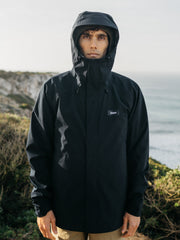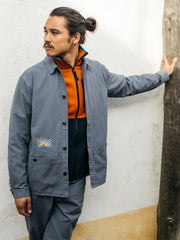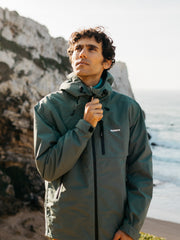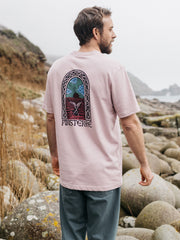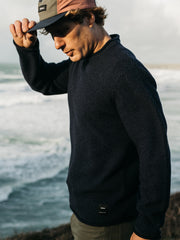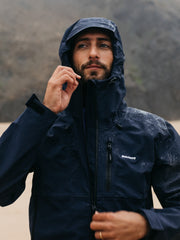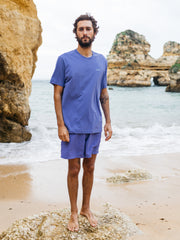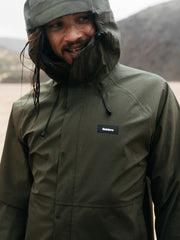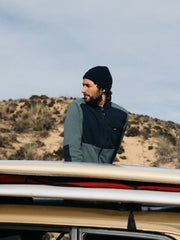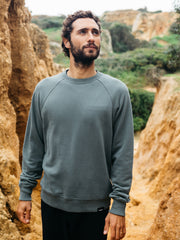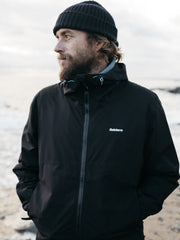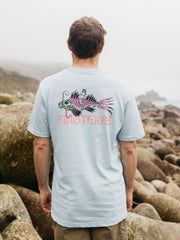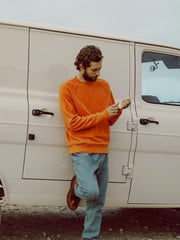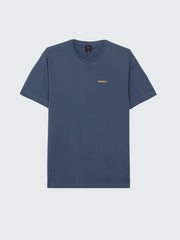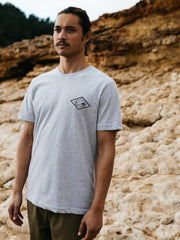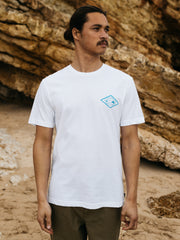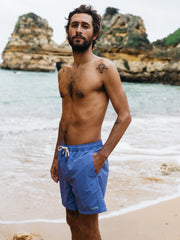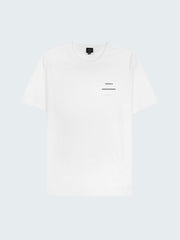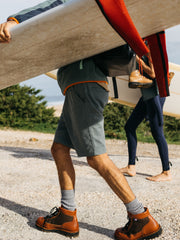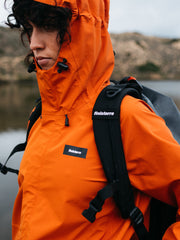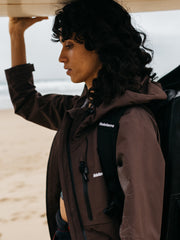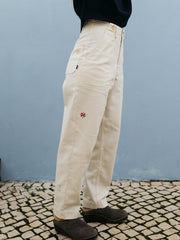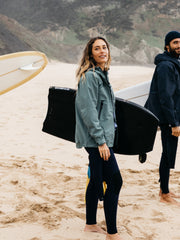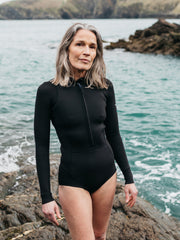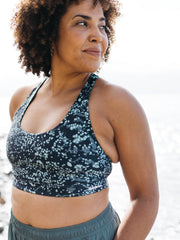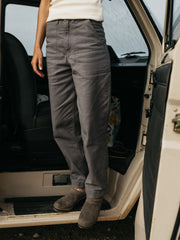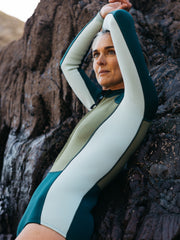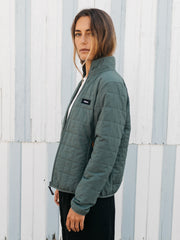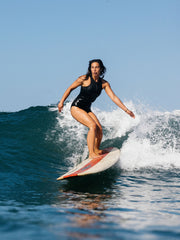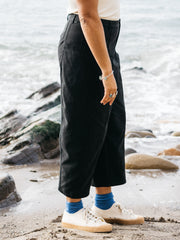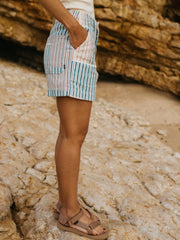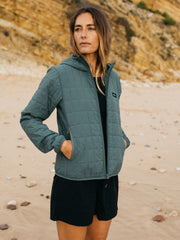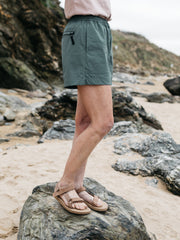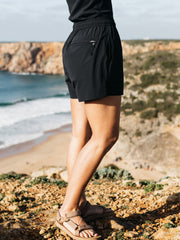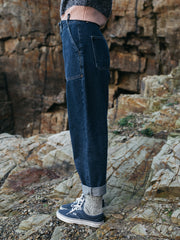Last year, we reached out to our community to find the different ways that people reconnect with our oceans. One person who’s certainly qualified to give their input is Katy Griffin, a mental health clinician who is making waves with her wellbeing programme, Thera-Sea.
Born from a similar ethos to our own and a shared love of the sea, we sat down with Katy to get the inside story on Thera-Sea and find out why she believes reconnection with nature is so crucial for mental health and overall wellbeing.
Reconnect To Wellness | In Conversation With Thera-Sea
01.20.20
4 min read
Header photo by Pip Hambling
All other photos by Tom Young
Mental health nursing can be really challenging. It's a difficult arena to work in, so what was it that drew you to that field?
Well, for me I guess my first experience of mental health was personal. I grew up in a lovely area of Derbyshire with a loving family. It was an outdoors life; we were completely surrounded by nature in the peak district. It was beautiful.
Then my dad became an alcoholic. What felt like overnight, our lives were completely changed. Living through my dad’s alcoholism for quite a few years and also wanting to understand what was behind that – because on the surface he had a great life – I think is what led me to have a particular interest in mental health. And my family is full of nurses and social workers as well, so there’s that too!
So, what’s Thera-Sea all about? It’s still fairly young, but in your own words, what does the course offer to people?
Thera-Sea is a way of getting an educational course in mental health. Essentially we teach people how to live well: understanding lifestyle medicine, and how stress is the main cause, or the main contributing factor, to all mental (and often physical) health conditions.
For me as a clinician, one of the things I’ve learned and I see so commonly, is that 80% of the patients I see simply need to understand mental health better, and how to look after the symptoms. Of the people I see, there’s only about 20% that have a real clinical diagnosis and need that extra support. For the majority though, it’s all lifestyle induced. It’s all related to stress, to the way we’re living, and ultimately not having a great understanding of what keeps us well.
“We hold it in a really beautiful location on the River Fal. It’s great because you can only get to it by hike or by boat so we’re well away from it all.”
It’s just about taking wellbeing back to basics. I feel a lot of it has become really medicalised: our healthcare system offers talking therapies and medication, which so many people don’t find helpful. The NHS offers a 20th century model to a 21st century problem. The good news is that there's a proven way to successfully manage stress and improve well-being. It's called progressive lifestyle medicine and Thera-Sea is dedicated to this new highly effective way of thinking.
What do you get the participants to do on the courses? What does the retreat entail exactly?
It’s my educational approach towards how to live well and about wellbeing, but we hold it in a really beautiful location on the River Fal. It’s great because you can only get to it by hike or by boat so we’re well away from it all. We do lots of different activities weather dependent of course. We take them surfing, obviously, but we’ll also do some kayaking, hiking, some bush-craft or foraging, learn survival skills, go swimming – so that’s all implemented in the course.
Physical exercise is another big thing for mental health, because it does release all those natural endorphins, chemicals like serotonin and dopamine, to the brain. Research shows that exercise is as effective if not more than medication at helping to improve your well-being without the side-effects. Exercising is one of the main components of ‘lifestyle medicine’ that I teach and ocean sports are a great way to do that in a natural environment. The exercise then goes along with sleep, nutrition, relaxation, relationships and purpose, to form a healthy lifestyle.
So, would you say that Thera-Sea is more of an educational programme than a treatment?
Yes, absolutely. I find that most people, even if they have a diagnosis, they need that extra understanding. That’s what actually helps people to take those skills back into their everyday lives to change things, so they can keep themselves well.
One of the big messages I want to get across is that people think it’s all about talking about the past and talking about feelings, but it’s not about that. It’s about educating people on what actually are the causes of poor mental health, the signs and the symptoms – with education people can recognise it, recognise triggers and live well.
“Mental health is like surfing: If you are a beginner surfer, and someone gives you a board and you’re sent out in 10ft, double overhead waves, you’re not going to have a clue what to do! And that’s terrifying. But if you’ve been surfing for years and you understand it and it all makes sense to you, then those 10ft waves look like great fun!”
It’s so basic in many ways, mental health. When people understand that, they get a completely different appreciation of what mental health is and why people become so unwell. How it can happen so easily, with no predisposition, no major life traumas. They don’t have to have a clinically diagnosed mental health illness, but so many people are becoming unwell…
You’re absolutely right. It’s interesting that you say it’s simple – so is riding a bike, but you still need someone to teach you...
That’s it! For me, one of the analogies I like to use is the one of going out in the surf. If you are a beginner surfer, and someone gives you a board and you’re sent out in 10ft, double overhead waves, you’re not going to have a clue what to do! And that’s terrifying. But if you’ve been surfing for years and you understand it and it all makes sense to you, then those 10ft waves look like great fun! Because they understand it and they know how to work it. And it’s the same with mental health.
What a brilliant metaphor! So, following on from that, what first drew you to the idea of using the sea for therapy?
I’ve always been taken to the beach on holiday and I’ve always had an obsession with the beach. So has my family, we’ve always loved it. I think I noticed for me personally there were benefits to it. I surf, I paddleboard, I kayak, I sea swim – and the benefits that I get from it, and equally the benefits everyone around me gets from it, are huge!
“We are overloaded ... In today’s world we now make more decisions in a day than what we used to in a whole year.”
You know how it is: you have a stressful day at work, you go out in the ocean and you come out feeling, a) relaxed and b) physically drained, so you usually sleep well which is very important. You also have no distractions out there. There’s an incentive of being calm and just having some time to yourself… There are honestly so many benefits to it.
Is that why you find it works particularly well with stress and anxiety?
I think it’s a lot about, as you at Finisterre say, a lost connection with nature. In today’s world we now make more decisions in a day than what we used to in a whole year. We’re living in such a way that is so unnatural for us – our brains are in overdrive!
Our brain is just another organ; If we pulled a muscle in our leg or broke it, we’d have to rest it. Yet we don’t rest our brains when they’ve gone into overdrive, so having time out in nature and being away from all the distractions and technology, just spending some time with natural noises and peace and quiet is now becoming the new luxury. That’s what people are craving more than ever and that’s why being in nature helps, because it gives you that tranquillity.
What do you think it is about that connection with nature that is so important? It’s a very human thing.
I think it’s part of our inherent existence as humans. It’s what we used to do and be surrounded by. It’s only through technology that we find ourselves in cities and are surrounded by entertainment that is all mass-produced and man-made. It’s not exactly what we are designed as humans to be surrounded by! So it’s just about going back to our roots, that’s simply what it is. Getting back to our roots. It’s how our brains were designed; to live in open nature, spending all day foraging for food and cooking.
The sympathetic nervous system is what’s responsible for the fight or fight response which induces that adrenaline rush, causing panic and anxiety. The Parasympathetic nervous system is what counteracts this and this is the part of the brain that appreciates being in nature.
“We’re teaching our brain that we’re stressed, or we’re in danger, so our brains are responding to that.”
At Thera-Sea we teach people to trigger the parasympathetic nervous system which counteracts that.
So we’re just stressing ourselves out far too much then? Your point about decisions was interesting – we make more in a day than we used to in a whole year – that’s incredible!
Well yes! We’re so overstimulated and like I say, when you overstimulate the brain it goes into overdrive and that’s when we’re triggering these fight or flight responses. We’re teaching our brain that we’re stressed, or we’re in danger, so our brains are responding to that and producing stress hormones more.
But we’re also not taking time out to re-train our brain to tell it that actually, “we know we’re calm and content right now”, and actually everything is ok. We’re just living in this really fast paced world and that’s why so many people get so overwhelmed.
So your message would be that it’s all about the bigger picture? Living well in every aspect of your life.
Mental health is such a small component of wellbeing, and wellbeing is the whole bigger picture. Thera-Sea is actually about wellbeing and living a good, healthy life – that’s the important thing.
We really are blessed down here in Cornwall, to have all this nature on our doorstep. And we need to be using it more, that’s the thing. There aren’t many services, especially with adults, that are embracing that to help people live well.
Well, thank you for speaking to us and giving us an insight into your world. So, final question - when’s your next retreat?
It’s the 23rd - 24th of May and we’re really excited for it. Our courses so far have been sold out so yeah – really looking forward to Thera-Sea continuing to grow!


